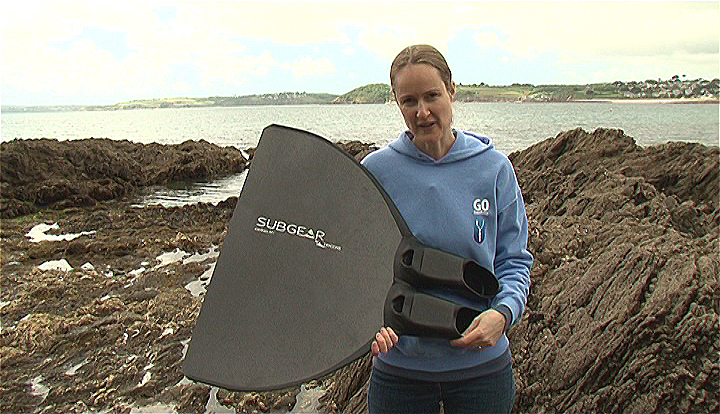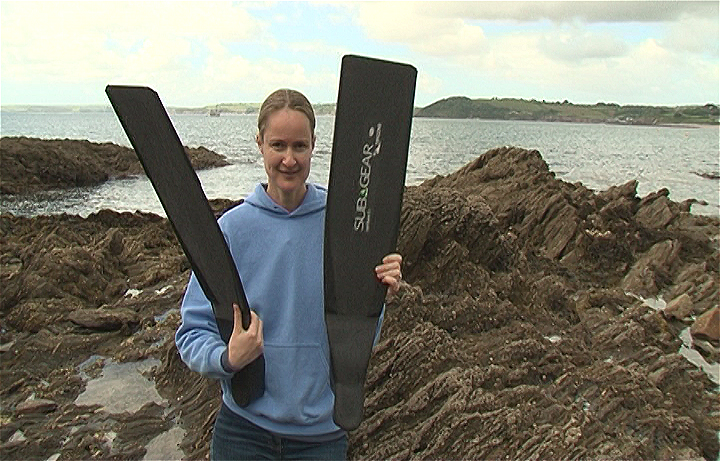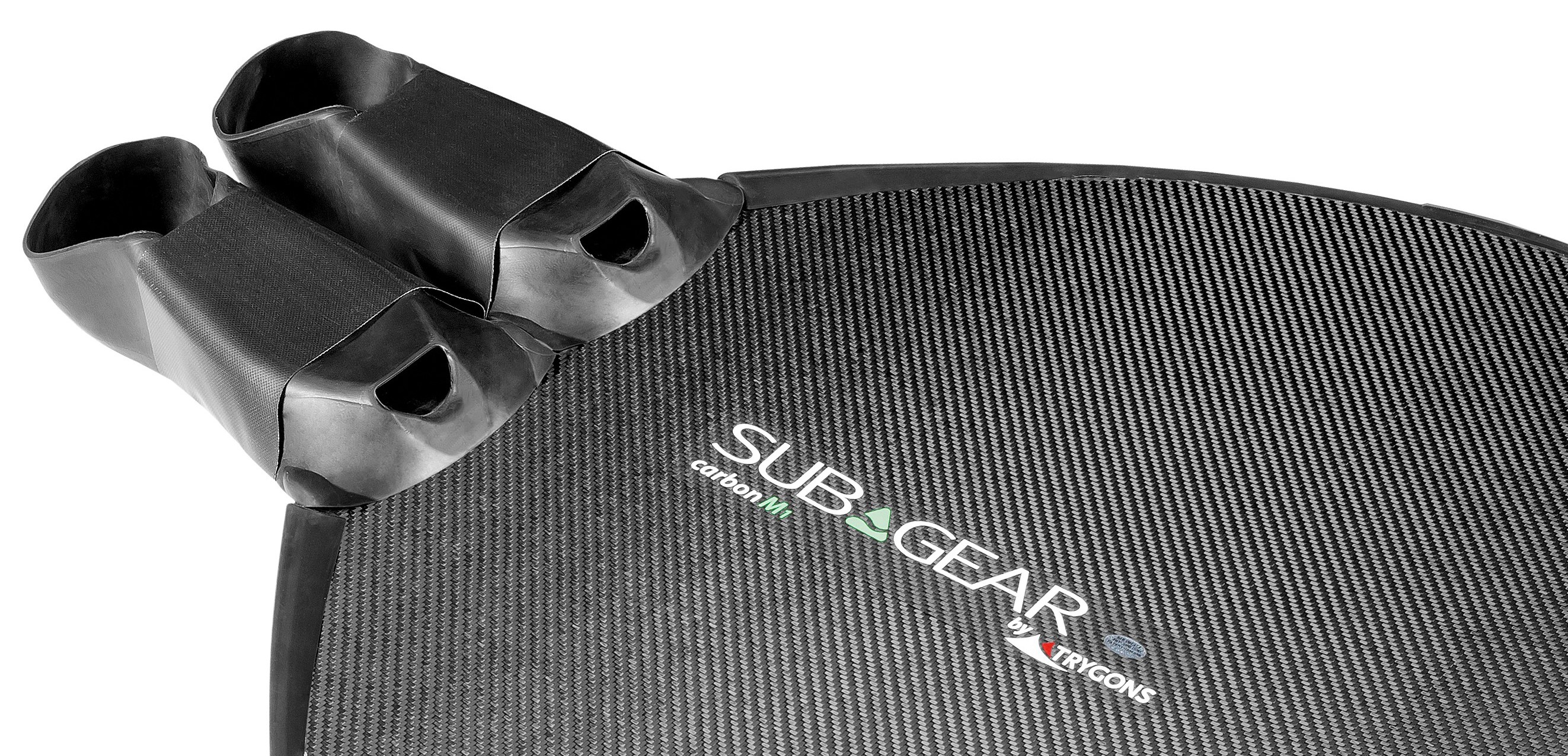News
Deepest Ever Marine Drill Discovers Life

Scientists are analysing microbial life that has been discovered following the deepest-ever marine drilling expedition.
The International Ocean Discovery Program (IODP) found the microbes living 2,400m beneath the seabed off Japan.
The tiny, single-celled organisms survive in this harsh environment on a low-calorie diet of hydrocarbon compounds and have a very slow metabolism.
The findings are being presented at the America Geophysical Union Fall Meeting.
Elizabeth Trembath-Reichert, from the California Institute of Technology, who is part of the team that carried out the research, said: “We keep looking for life, and we keep finding it, and it keeps surprising us as to what it appears to be capable of.”
The IODP Expedition 337 took place in 2012 off the coast of Japan’s Shimokita Peninsula in the northwestern Pacific.
From the Chikyu ship, a monster drill was set down more than 1,000m (3,000ft) beneath the waves, where it penetrated a record-breaking 2,446m (8,024ft) of rock under the seafloor.
Samples were taken from the ancient coal bed system that lies at this depth, and were returned to the ship for analysis.
The team found that microbes, despite having no light, no oxygen, barely any water and very limited nutrients, thrived in the cores.
To find out more about how this life from the “deep biosphere” survives, the researchers set up a series of experiments in which they fed the little, spherical organisms different compounds.
Dr Trembath-Reichert said: “We chose these coal beds because we knew there was carbon, and we knew that this carbon was about as tasty to eat, when it comes to coal, as you could get for microbes.
“The thought was that while there are some microbes that can eat compounds in coal directly, there may be smaller organic compounds – methane and other types of hydrocarbons – sourced from the coal that the microbes could eat as well.”
The experiments revealed that the microbes were indeed dining on these methyl compounds.
The tests also showed that the organisms lived life in the slow lane, with an extremely sluggish metabolism.
They seem to use as little energy as possible to get by.
The researchers are now trying to work out if there are lots of different kinds of microbes living in the coal beds or whether there is one type that dominates.
They also want to find out how the microbes got there in the first place.
“Were these microbes just in a swamp, and loving life in a swamp, because there is all sorts of carbon available, oxygen, organic matter… and then that gets buried?” pondered Dr Trembath-Reichert.
“It could be that they didn’t get a chance to escape – they couldn’t exactly walk out. So is it that they were there to begin with and then they could maintain life?
“Or were they like microbes that were able to travel down to those depths from the surface?”
The discovery of vast ecosystems of microbes deeper and deeper underground is causing scientists to reassess the role that these organisms play in the carbon cycle.
Because these organisms take in hydrocarbons and expel methane, a greenhouse gas, as a waste product, they may be having a greater impact on the system that governs the Earth’s climate than was previously thought.
The findings also have implications for the hunt for life on other planets.
If life can survive in the most extreme conditions on Earth, perhaps it has found a way to cope with harsh environments elsewhere in the Universe.
Source: www.bbc.co.uk/news
Gear News
Introducing the TR-80, IR-50 and CS-30 Regulators from DYNAMICNORD

Whether you are a beginner or a professional diver – with the three new main regulators from DYNAMICNORD, everyone will find their favourite regulator. They all look super stylish.
Excellent performance with the TR-80
Quality and performance are the be-all and end-all for regulators. It is not for nothing that the TR stands for Tec Reg. The innovative design of the TR-80 guarantees absolute reliability – even in ice-cold waters.

Perfect breathing effort at 0.8 J/l / certified for diving in waters below 10 degrees / structural design made of solid brass for best cold protection / membrane-compensated design with dry seal of the first stage / reduced exhalation effort thanks to optimized exhalation membrane and bubble deflector / adjustable Venturi (dive/predive) and adjustment knob for individual inhalation comfort / innovative design of the front cover prevents free-flow in strong currents or when diving with scooters / design made of sandblasted brass, matt chrome finish / 2 HP and 4 LP outlets / mouthpiece made of high-quality, anti-allergic silicone for maximum comfort.


Amazing underwater adventures with the IR-50
The IR-50 is the top regulator for advanced and experienced divers. Natural breathing is the essence of this regulator.

Ideal breathing effort at 0.8 J/l /certified for diving in waters below 10 degrees / compensated membrane / adjustable venturi (dive/predive) and adjustment knob for individual inhalation comfort/ outlet valve and deflector for minimum exhalation effort and reduction of bubbles on the face / design made of sandblasted brass, matt chrome finish / 2 HP and 4 NP outlets / mouthpiece made of high-quality, anti-allergic silicone for maximum comfort.


The Workhorse – our CS-30
For diving centres and diving beginners – the workhorse stands for strong construction, reliability and robustness. Perfect for your training.

Optimal breathing effort at 0.8 J/l /recommended for diving in waters above 10 degrees / non-compensated piston / adjustable venturi (dive/predive) / outlet valve and deflector for minimum exhalation effort and reduction of bubbles on the face / design made of sandblasted brass, matt chrome finish / 1 HP and 3 NP outlets / mouthpiece made of high-quality, anti-allergic silicone for maximum comfort.


Octopus OP-30
The OP-30 is the ideal addition to all DYNAMICNORD regulators. It is identical in construction to the CS-30.

The TR-80, IR-50, CS-30 (DIN & INT) regulators and the Octopus OP-30 are available from DYNAMICNORD dealers and in the online store.
DYNAMICNORD – Your Outdoor Companion.
Marine Life & Conservation
Paul Watson Released as Denmark Blocks Japan’s Extradition Bid

Renowned anti-whaling activist Paul Watson has been released from custody in Greenland after spending five months in detention. Denmark’s Justice Ministry rejected Japan’s request for his extradition, citing insufficient guarantees that his time already served in custody would be credited against any potential sentence.
The 74-year-old Canadian-American was arrested on July 21 in Nuuk, Greenland’s capital, when his ship docked to refuel. His arrest was based on a 2012 Japanese warrant related to a 2010 encounter in Antarctic waters. Japan alleged Watson obstructed operations and caused damage to a whaling research ship during efforts to disrupt illegal whaling. Watson has consistently denied these claims, maintaining his commitment to marine conservation.
Denmark, which oversees extradition matters for Greenland, concluded that while the legal conditions for extradition were met, the lack of assurances from Japan regarding time-served credit made extradition untenable.
In a video shared by his foundation, Watson expressed gratitude and relief, saying, “After five months, it’s good to be out… and good to know they’re not sending me to Japan.” He added that the most difficult part of his time in custody was being separated from his two young sons.
Watson is a pioneering figure in marine conservation, known for founding the Captain Paul Watson Foundation in 2022 after decades of activism with the Sea Shepherd Conservation Society. His bold efforts to defend marine life have earned him widespread support, including from celebrities and conservationists. His work has also been featured in the acclaimed reality TV series Whale Wars.
Watson’s lawyer, Jonas Christoffersen, praised the decision, stating, “We are happy and relieved that Paul Watson is now free.” He added that Watson is eager to reunite with his family and continue his vital work.
The arrest occurred while Watson’s vessel, the M/Y John Paul DeJoria, was en route to the North Pacific with a team of 26 volunteers to intercept a Japanese whaling ship. His foundation described the arrest as politically motivated and emphasized that Watson’s actions were focused on ending illegal whaling practices.
Japan resumed commercial whaling in 2019 after leaving the International Whaling Commission, asserting that whale meat is a cultural tradition. Conservationists, however, continue to challenge these practices, highlighting their impact on marine ecosystems.
Despite the challenges, Watson remains steadfast in his mission to protect marine life and bring attention to whaling practices. His dedication to ocean conservation has made him a globally respected advocate for the environment.
-

 News2 months ago
News2 months agoIconic SS United States to become the World’s Largest Artificial Reef
-

 News3 months ago
News3 months agoBook Review – 52 Assignments: Underwater Photography
-

 Gear News3 months ago
Gear News3 months agoDYNAMICNORD – New German diving brand enters the British market
-

 News3 months ago
News3 months agoExploring Cenote El Pit: A Diver’s Dream
-

 Gear News3 months ago
Gear News3 months agoTry BARE drysuits (and maybe even win one!) this Friday with Sea & Sea at North West Dive Fest
-

 Marine Life & Conservation3 months ago
Marine Life & Conservation3 months agoBook Review: Coral Triangle Cameos
-

 Blogs2 months ago
Blogs2 months agoDive the Egyptian Red Sea this Autumn with Regaldive
-

 News3 months ago
News3 months ago2024 Ocean Art Underwater Photo Competition Announced






